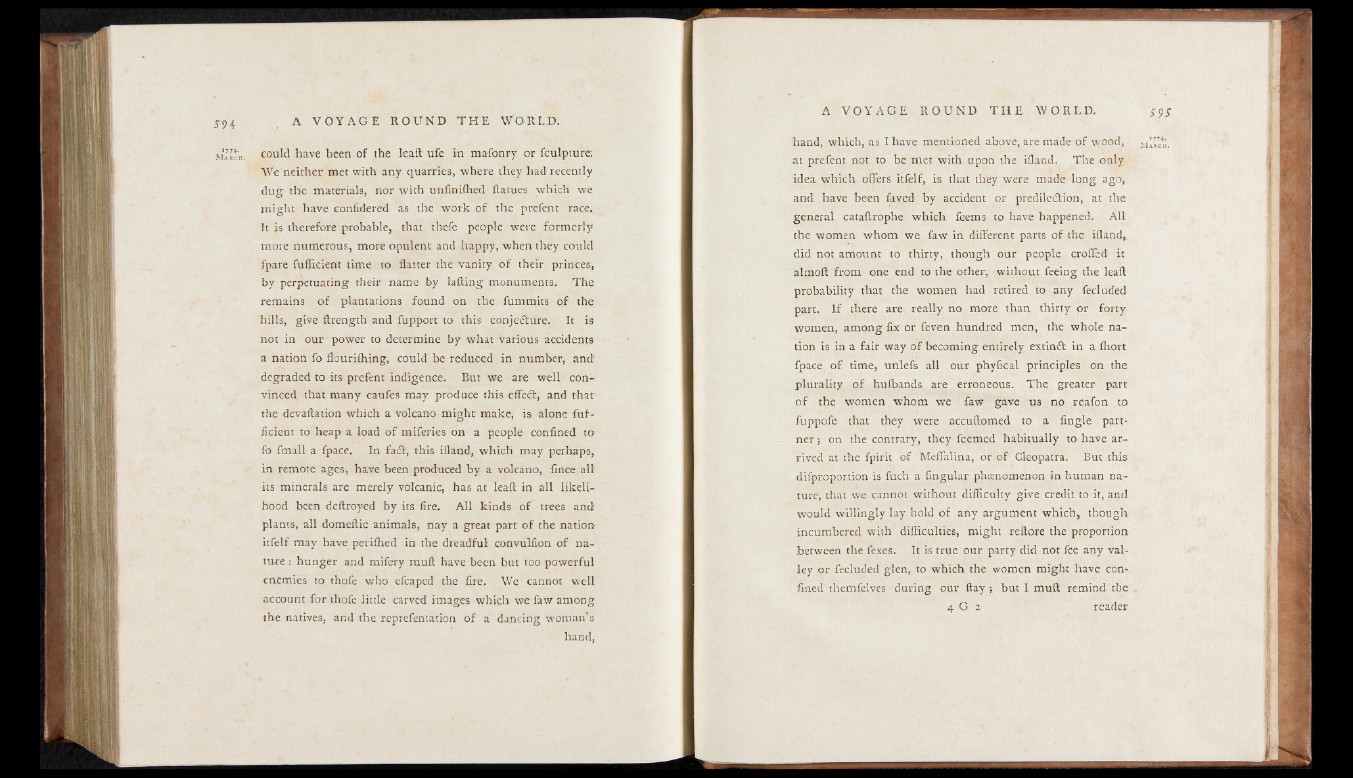
march, could have been of the leaft ufe in mafonry or fculpture;
We neither met with any quarries, where they had recently
dug the materials, nor with unfinifhed flames which we
might have confidered as the work of the prefent race.
It is therefore probable, that thefe people were formerly
more numerous, more opulent and happy, when they could
fpare fufficient time to flatter the vanity of their princes-,
by perpetuating their name by lafting monuments. The
remains of plantations found on the fummits of the
hills, give ftrength and fupport to this conjecture. It is
not in our power to determine by what various accidents
a nation fo flourifhing, could be reduced in number, and'
degraded to its prefent indigence. But we are well convinced
that many caufes may produce this effeCt, and that
the devaftation which a volcano mighr make, is alone fufficient
to heap a load of miferies on a people confined to
fo fmall a fpace. In faCt, this ifland, which may perhaps,
in remote ages, have been produced by a volcano, fince all
its minerals are merely volcanic, has at leaft in all likelihood
been deftroyed by its fire. All kinds of trees and
plants, all domeftic animals, nay a great part of the nation
itfelf may have perifhed in the dreadful convulfion of nature
: hunger and mifery mull have been but too powerful
enemies to thofe who efcaped the fire. We cannot well
account for thofe little carved images which we faw among
the natives, and the reprefentation of a dancing woman’ s
hand,
A V O Y A G E ROUND THE WORLD. 5 9 5
hand, which, as I have mentioned above, are made of wood, t/bSpA
at prefent not to be met with upon the ifland. The only
idea which offers itfelf, is that they were made long ago,
and have been faved by accident or predilection, at the
general cataftrophe which feems to have happened. All
the women whom we faw in different parts of the ifland,
did not amount to thirty, though our people crofled it
almoft from one end to the other, without feeing the leaft
probability that the women had retired to any fecluded
part. If there are really no more than thirty or forty
women, among fix or feven hundred men, the whole nation
is in a fair way of becoming entirely extinCt in a fhort
fpace of time, unlefs all our phyfical principles on the
plurality of hufbands are erroneous. The greater part
of the women whom we faw gave us no reafon to
fuppofe that they were accuftomed to a Angle partner
; on the contrary, they feemed habitually to have arrived
at the fpirit of Meffalina, or of Cleopatra. But this
difproportion is fuch a Angular phenomenon in human nature,
that we cannot without difficulty give credit to it, and
would willingly lay hold of any argument which, though
incumbered with difficulties, might reftore the proportion
between the fexes. It is true our party did not fee any valley
or fecluded glen, to which the women might have confined
themfelves during our flay; but I muft remind the ,
4 G 2 reader